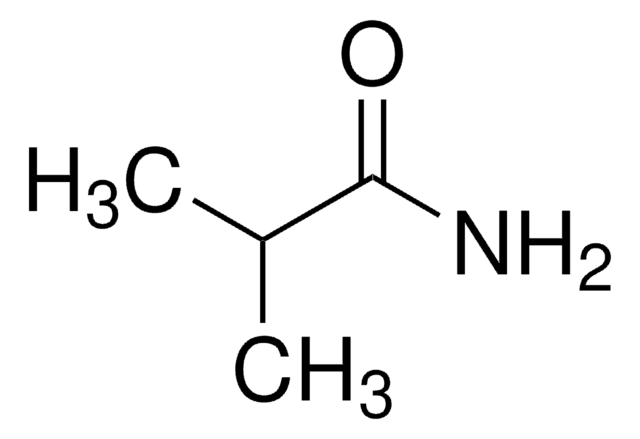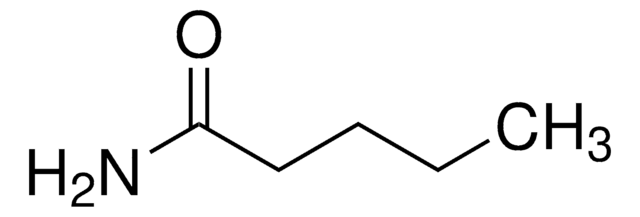19240
Butyramide
≥98.0% (T)
Sinónimos:
Amide C4
About This Item
Productos recomendados
Quality Level
assay
≥98.0% (T)
mp
114-116 °C
solubility
alcohol: soluble(lit.)
diethyl ether: slightly soluble(lit.)
water: soluble(lit.)
functional group
amide
SMILES string
CCCC(N)=O
InChI
1S/C4H9NO/c1-2-3-4(5)6/h2-3H2,1H3,(H2,5,6)
InChI key
DNSISZSEWVHGLH-UHFFFAOYSA-N
Gene Information
rat ... Ggt1(116568)
¿Está buscando productos similares? Visita Guía de comparación de productos
Application
Storage Class
13 - Non Combustible Solids
wgk_germany
WGK 3
flash_point_f
Not applicable
flash_point_c
Not applicable
ppe
dust mask type N95 (US), Eyeshields, Gloves
Elija entre una de las versiones más recientes:
¿Ya tiene este producto?
Encuentre la documentación para los productos que ha comprado recientemente en la Biblioteca de documentos.
Los clientes también vieron
Nuestro equipo de científicos tiene experiencia en todas las áreas de investigación: Ciencias de la vida, Ciencia de los materiales, Síntesis química, Cromatografía, Analítica y muchas otras.
Póngase en contacto con el Servicio técnico










